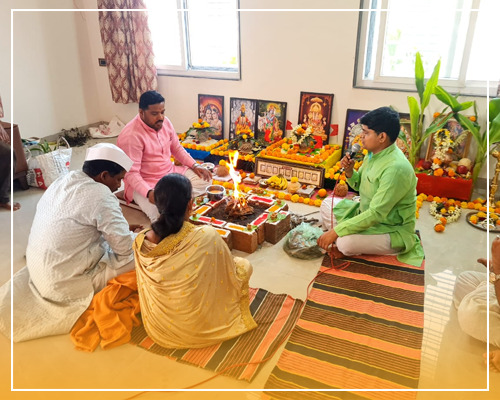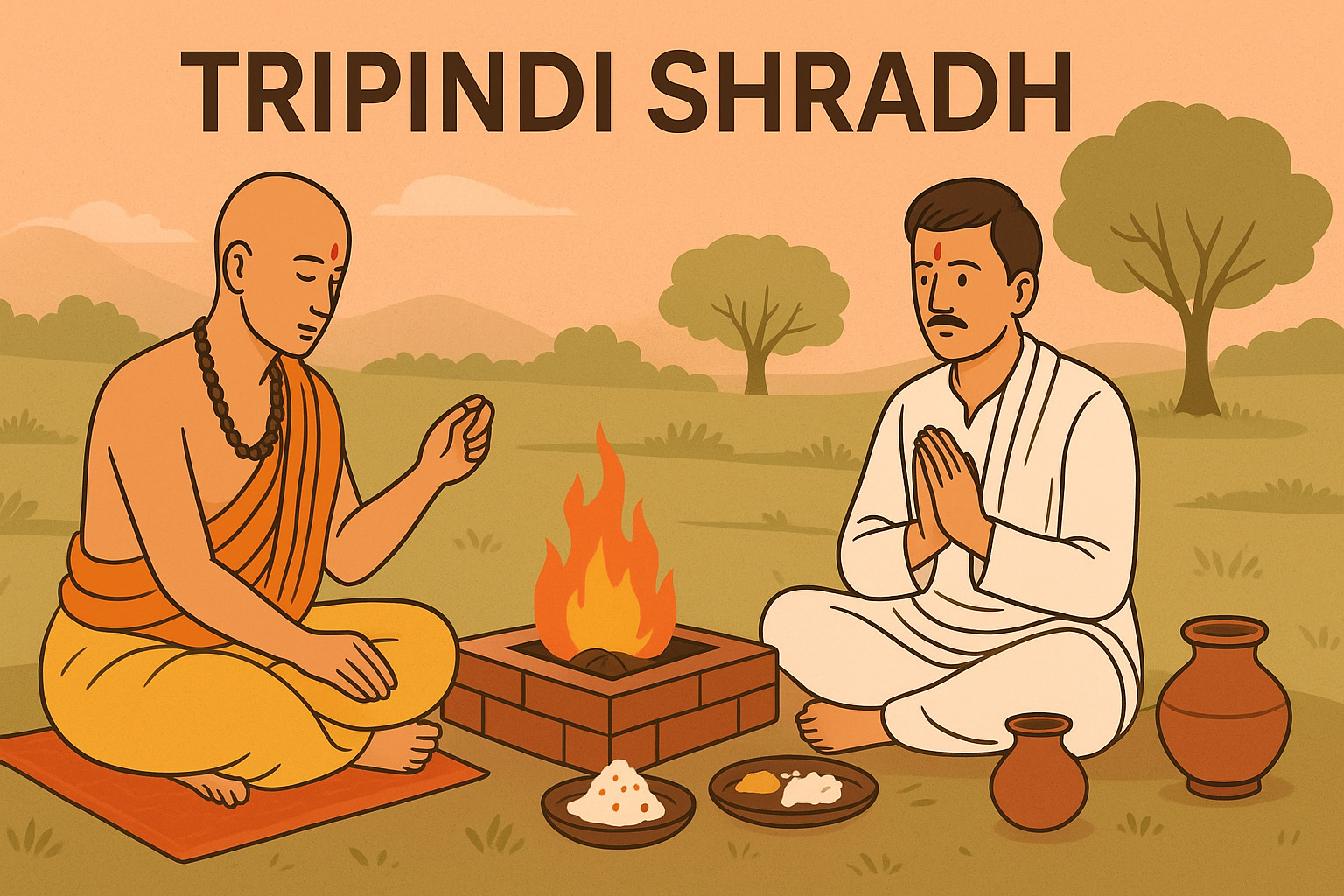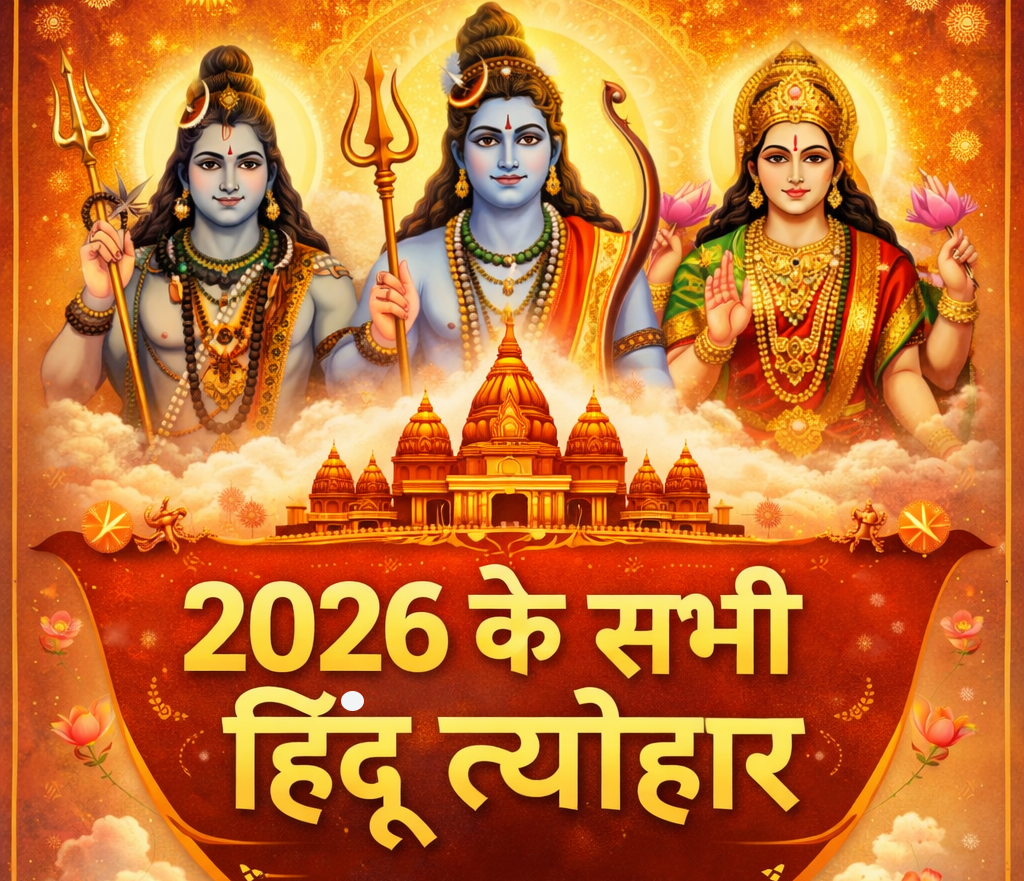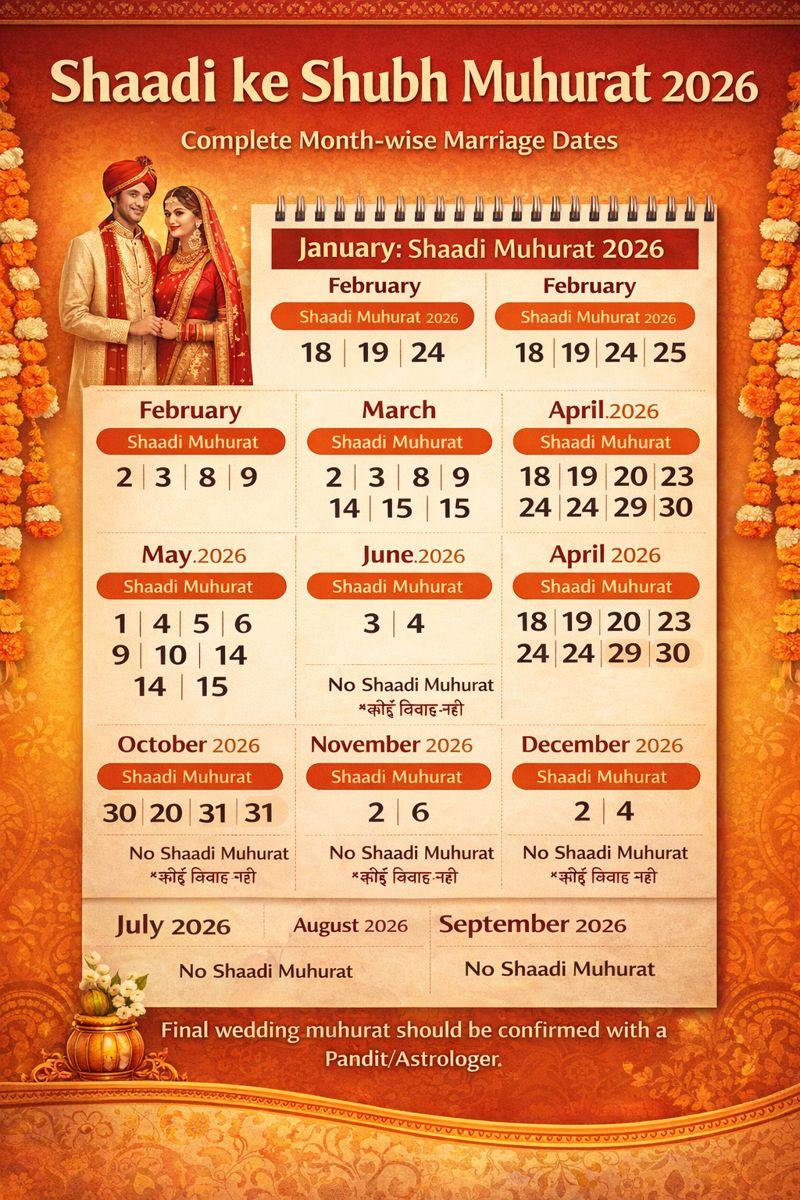Book Pandit in Patna for Sanskar & Life-Event Pujas – Vedic Rituals
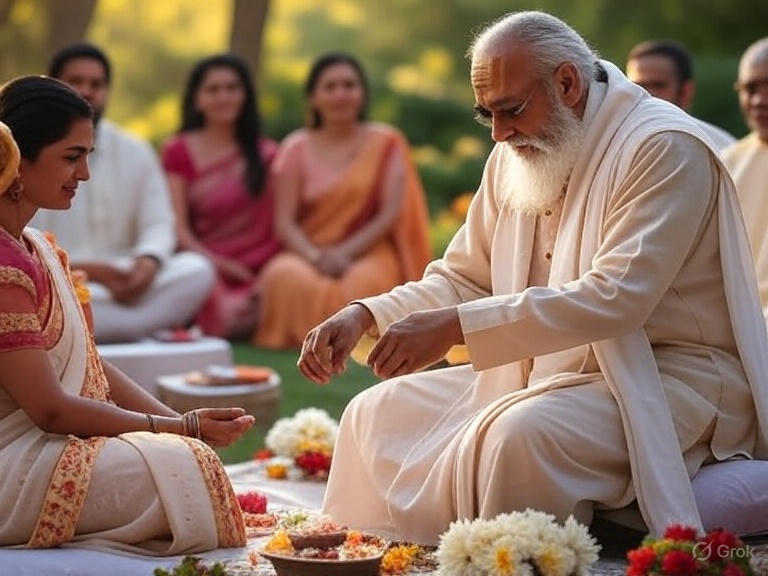
Sanskar Pujas are sacred Vedic rituals performed to sanctify and bless various important stages of life — from birth to death. These ceremonies, known as “Sanskars”, are described in ancient texts like the Grihya Sutras, and are meant to purify the body, mind, and soul at each transitional phase of life.
Unlike festival-based rituals, Sanskar or Life-Event Pujas can be performed throughout the year, based on the individual's needs and the timing of life events such as birth, naming, first haircut, house entry, marriage, education, career beginnings, or even retirement.
At Balaji Karmakand Jyotish Pramarsh Kendra, we offer experienced Pandits in Patna to perform all major Sanskar and personal pujas with authentic vidhi, mantras, and muhurat guidance.
List of Common Sanskar & Life-Event Pujas (जीवन-आधारित प्रमुख संस्कार पूजा)
1. Naamkaran Sanskar (Naming Ceremony)
Performed on the 11th, 12th, or 21st day after a child's birth. It includes havan, sankalp, and naming ritual with blessings from elders and deities.
2. Annaprashan (First Solid Food Ceremony)
Marks the baby's transition from liquid to solid food, usually done in the 6th or 7th month. It includes puja, feeding of kheer or rice, and blessings.
3. Mundan Sanskar (First Haircut Ceremony)
A symbolic act of removing past karma and impurities. Typically done in the 1st, 3rd, or 5th year of the child’s life with complete Vedic puja and havan.
4. Vidyarambh Sanskar (Start of Education)
Performed before a child begins school. Includes worship of Goddess Saraswati, Ganesh puja, and initiation into writing (aksharabhyas).
5. Upanayan Sanskar (Sacred Thread Ceremony/Yagyopavit)
Initiates the child into formal spiritual learning and duties. Performed primarily for boys in Brahmin, Kshatriya, and Vaishya communities.
6. Griha Pravesh Puja (Housewarming Ritual)
Essential puja before entering a new house. Includes vastu shanti, kalash sthapana, navagraha puja, and havan for purification and prosperity.
7. Vivah Sanskar (Marriage Ritual)
Traditional Hindu wedding rituals done as per Vedic customs including Ganesh puja, Kanyadaan, Panigrahan, Saptapadi, and Havan.
8. Seemantonnayan (Baby Shower Ceremony)
Performed during pregnancy to bless the expectant mother and unborn child, typically in the 5th, 7th, or 9th month.
9. Retirement Puja / Vanprastha Sanskar
Marks the transition from householder life to spiritual pursuit. Includes havan, japa, and symbolic renunciation of worldly duties.
10. Shanti Path / Graha Dosha Nivaran Pujas
Performed at any stage of life to remove planetary obstacles, negativity, or health problems (includes Navagraha Shanti, Pitra Dosh Puja, etc.)
Why Perform Life-Event Based Pujas? (संस्कार पूजा क्यों करें?)
To sanctify major milestones in life as per Vedic tradition
To seek blessings from deities, ancestors, and nature
To ensure physical, mental, and spiritual well-being
To purify the environment and remove doshas or negative energies
To connect children and family with dharma and culture
Benefits of Sanskar Pujas (संस्कार पूजा के लाभ)
Promotes family harmony and spiritual growth
Protects individuals from unseen obstacles and doshas
Improves health, fortune, and overall wellbeing
Ensures smooth transitions during life phases
Invites divine blessings for success and peace
How Are Sanskar Pujas Performed? (संस्कार पूजा कैसे की जाती है?)
Each Sanskar Puja has a unique vidhi as per the Grihya Sutras and Vedic manuals. Our Pandits in Patna perform these rituals step-by-step including:
Selection of an auspicious muhurat based on birth details or event date
Sankalp by the yajman with gotra and name
Ganesh Puja to remove obstacles
Kalash Sthapana, deity invocation, and mantra chanting
Havan or homam (where applicable)
Main ritual of the sanskar (e.g., naamkaran, mundan, grihapravesh)
Aarti and blessings from elders and Brahmins
Daan and prasad distribution
We can customize the puja depending on family tradition, region, and specific requirements.
Required Samagri (पूजा की सामग्री)
While each sanskar has its own specific items, commonly required samagri includes:
Idols or images of relevant deities (Ganesha, Vishnu, Saraswati, etc.)
Kalash, mango leaves, coconut, red/yellow cloth
Ghee, havan samagri, incense, camphor, diya
Fruits, sweets, rice, haldi, kumkum, akshat
Panchamrit and pure water (preferably Gangajal)
Items for donation such as clothes, grains, utensils (as per ritual)
Optional: We provide complete Puja Samagri Kits on request
When Should These Pujas Be Performed? (संस्कार पूजा कब करें?)
These are non-seasonal pujas, meaning they can be performed at any time of the year. However, the date and muhurat must be determined using:
Tithi (lunar day)
Nakshatra (constellation)
Lagna (ascendant)
Panchang (Hindu calendar)
Our team will calculate the most auspicious muhurat for your selected sanskar based on Patna’s local Panchang.
Why Book a Pandit in Patna for Sanskar Puja? (पटना में संस्कार पूजा के लिए पंडित क्यों बुक करें?)
Trained in Vedic Sanskar rituals and Sanskrit mantras
Guidance on muhurat, samagri, and cultural customs
Customization as per family tradition and local practice
Peaceful, disciplined, and spiritually uplifting environment
Optional samagri and daan arrangement
Our Pandits ensure the ritual is not just performed — but spiritually fulfilled.
How to Book Pandit in Patna for Sanskar / Life-Event Pujas?
Call or WhatsApp us with your puja type and preferred date
Share your location and event details
Confirm if you need puja samagri provided by us
We’ll schedule the best-fit Pandit for your home or venue
Our Pandit will reach on time and perform puja as per Vedic tradition
Conclusion (निष्कर्ष)
From birth to marriage, education to new beginnings, every stage of life becomes spiritually enriched when aligned with Sanskar Puja. These sacred rituals bring balance, positivity, and divine blessings that stay with us through life.
Book your Sanskar or Life-Event Puja in Patna today with Balaji Karmakand Jyotish Pramarsh Kendra and honor your life's milestones with the sacred power of Vedic tradition.

